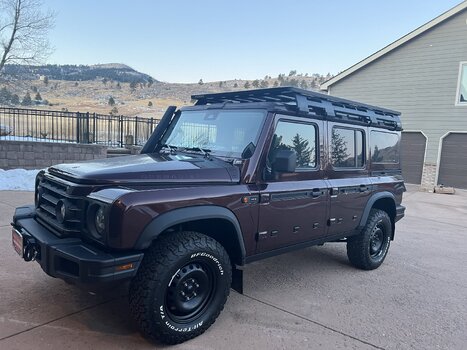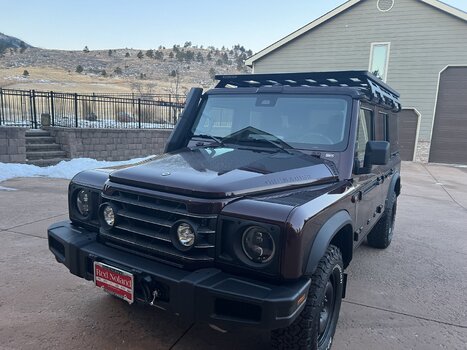The main reason the turning radius is larger than that of a similarly built vehicle (e.g. other solid axle vehicles like the Jeep Wrangler) is the decision to go with king pins as opposed to ball joints in the front end.
While king pin set-ups are generally understood to be stronger than ball joints set-ups
1. They are well-known to have a wider turning radius (all other things being equal)
2. They tend to have more play in the steering
3. They do not articulate as well
Note: the table below is a pretty good summary, though I wouldn't say it is 100% accurate. In particular:
(1) King pin set-ups are strong and durable - no doubt. But there are a lot of heavy duty axles with ball joints that hold up to heavy use with absolutely no problems. Dynatrac, and Carli, and some other manufacturers make ball joints for Dana 60 axles (or the like) that are super strong. A Dana 60 axle with upgraded ball joints from Dynatrac or Carli can provide similar practical strength to a king pin set-up in the same size axle, with a smaller turning circle, potentially less play in the steering, and potentially better axle articulation. But Dana 60s are big and heavy. The Carraro axles are lighter-duty than a Dana 60, and in axles of this size, there are probably significant strength gains from a king pin set-up when compared to a ball joint.
(2) In axles of similar size, a king-pin set-up will have slightly weaker knuckles than those in a ball-joint set-up, since the king pin takes away from some of the mass of the knuckles. In a smaller axle, this could be relevant, but in a beefier axle the knuckles - even with king pins - will be very strong.
View attachment 7840798
Source: https://automotivesimple.com/king-pin-vs-ball-joint/
Give me King Pins or give me Portals, your choice





